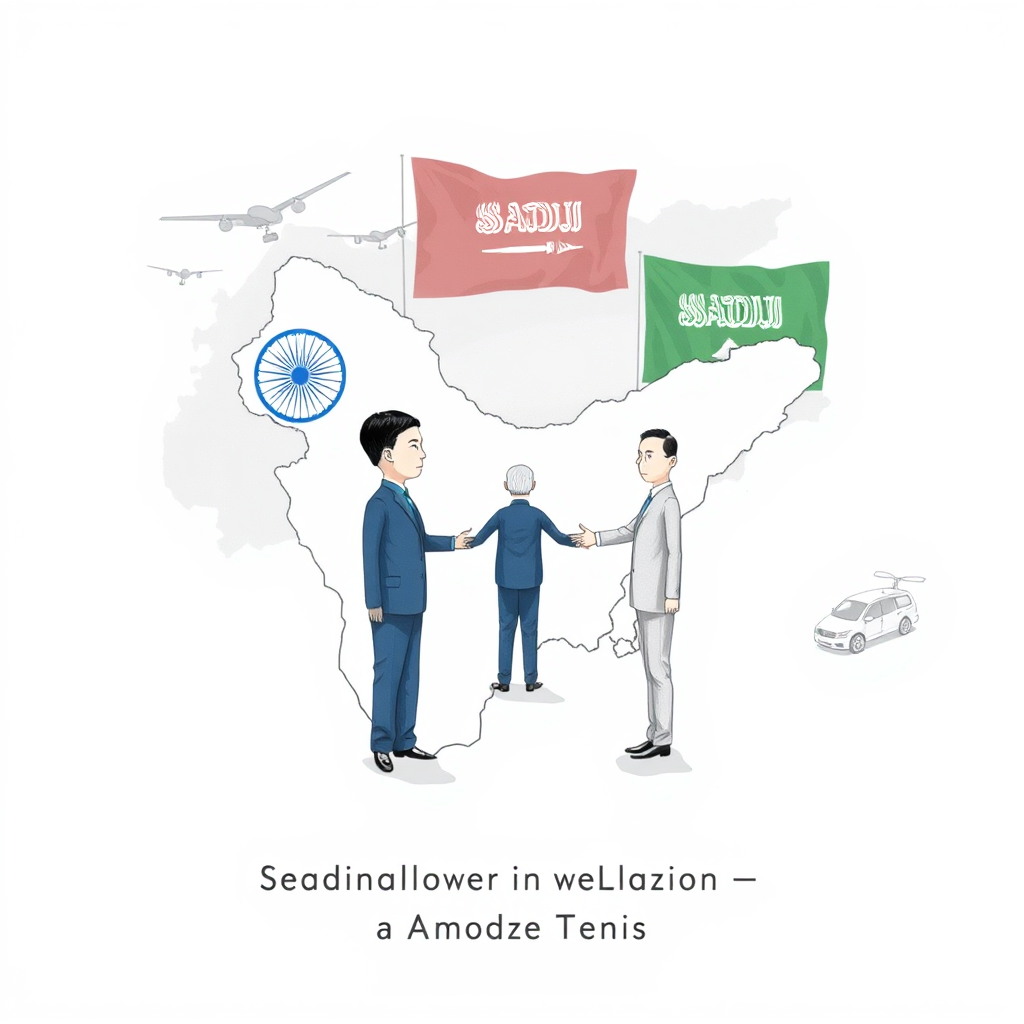Gulf States May Prevent India Pakistan Nuclear War

The escalating crisis between India and Pakistan shows no signs of abating. Pakistan’s military reports killing 40 to 50 Indian troops and shooting down 29 Indian drones along their disputed border in Kashmir, in retaliation for India’s strikes on alleged terrorist camps within Pakistan. This latest flare-up follows a deadly terrorist attack in Indian-controlled Kashmir last month, which claimed 25 Indian and one Nepali life. Both nations accuse the other of instigating the violence, pushing the region perilously close to all-out war.
Pakistan’s Army Chief, General Ashi Munir, warned India against any military adventurism, vowing a swift and decisive response. Analysts like Bharat Karnad, an emeritus professor in national security studies, view Munir as a hawkish figure, driven by religious ideology. Conversely, Fawad Chaudhry, a former Pakistani Information Minister, believes Indian Prime Minister Narendra Modi is the primary provocateur, seeking to bolster his legacy amid declining popularity.
The international community watches with alarm as two nuclear-armed nations inch closer to conflict. The United Nations has urged restraint, but the U.S. has adopted a hands-off approach, leaving a diplomatic vacuum. Enter the Gulf States, particularly Saudi Arabia, which are stepping in to mediate the crisis.
Saudi Arabia’s Foreign Minister, Adel Al-Jubeir, made an unexpected visit to India to discuss de-escalation with External Affairs Minister S. Jaishankar. With millions of Indian and Pakistani workers in the Gulf, stability in the region is crucial for Saudi Arabia and other Gulf nations. This marks a significant shift for Saudi Arabia, which has historically been a destabilizing force in the region.
The Gulf States’ growing economic and diplomatic influence has led them to prioritize interests over ideology. Unlike in the past, they are not automatically siding with Pakistan but are instead urging restraint from both sides. However, the situation remains complex, with China also playing a significant role as Pakistan’s ally and a claimant in the disputed Kashmir territory.
Despite these complexities, it is clear that no regional actor wants another India-Pakistan war. However, recent developments, such as India’s suspension of the Indus Water Treaty and Pakistan’s suspension of the Shimla Agreement, have raised the stakes. These actions have effectively removed legal barriers to military escalation, making careful and constant diplomacy more crucial than ever.
In my opinion, the Gulf States’ involvement is a positive development, but it is not enough to guarantee peace. The international community must also play a more active role in encouraging dialogue and restraint. Additionally, both India and Pakistan must be willing to engage in meaningful negotiations to address their long-standing disputes. The future of the region depends on their ability to do so.